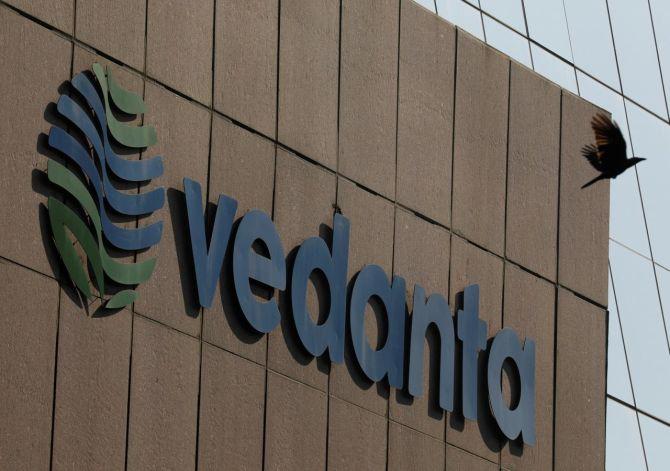Debt management is going to be a worry for the Vedanta group until FY25 at least. However, the restructuring of business divisions in Vedanta India could lead to an unlocking of values.

The group structure is fairly complex. Anil Agarwal-led Vedanta Resources (VRL), which is London-listed, has a lot of debt on the balance sheet.
It will have to repay $1 billion in secured bonds by January 2024 and at least another $300 million in calendar 2024.
By the end FY25, it will have to repay around $3 billion in debt.
Refinancing this would be hard, given the tight money supply and high interest rates imposed by central banks.
VRL has also suffered ratings downgrades.
VRL’s key subsidiary is the India-listed conglomerate Vedanta Limited (Vedl) where VRL owns 63.7 per cent stake.
Vedl is being split into six entities.
The original Vedl will retain a stainless steel division, and the group’s 64.9 per cent stake in Hindustan Zinc.
It will also control the new foray into semi-conductors and display units.
The new entities will be Vedanta Aluminium, Vedanta Steel (which holds the assets taken over from erstwhile Sesa Goa), Vedanta Base Metals (Copper and Zinc), Vedanta Power (which holds the Independent Power plants), and Vedanta Oil & Gas (the assets from the Cairn India takeover).
All these will be listed by FY25.
The shareholders will get the same number of shares in each new entity that they hold in Vedl.
The new CEOs have already been announced.
This is a complete 180 degree turn from the earlier strategy of consolidation of various business units into one entity.
How does this demerger help with debt service?
It doesn’t, not directly.
One cash cow for the group has been Hindustan Zinc, which remains with Vedl.
Apart from this, the others will continue to pay dividends and brand royalties to VRL.
While VRL received roughly $2.8 billion in these two income streams in FY23 from VEDL, it is likely to receive less in FY24.
Brand Royalty is calculated on the basis of realised prices, and metal prices have dropped. Dividends are obviously dependent on realisations.
Calculating and comparing payouts will be hard, but given commodity trends, FY24 is unlikely to see serious growth in dividend or brand royalty payouts compared to FY23.
However, the demergers offer more freedom and flexibility to individual companies, as opposed to the centralised control under the current systems.
Hence, it’s possible that these new entities, or some of them at least, will be able to strategise better and drive margins more effectively.
It also offers an upside in terms of valuations.
Apart from the debt mountain of VRL, Vedl suffers from the usual holding company discount.
The market valuation of Vedl is less than the market valuation of the Hindustan Zinc stake that it holds.
That discount should correct and normalise if the business divisions are spun off.
This would clearly give shareholders an upside.
It would also give VRL easier options if it is looking to sell off its stake in one or more of the entities or if it seeks a strategic investor to take a stake in one of the entities.
On that basis, several analysts are calling the demerger a good step and suggesting this makes Vedl a buy.
However, the debt issues remain and given weak global growth and a high-interest financial environment, there are obvious concerns.
The Vedl stock responded positively, rising 3.7 per cent on Tuesday (October 3) to close at Rs 230.80, on a day the S&P BSE Metal index fell by 0.8 per cent.
According to Bloomberg, 5 out of 9 analysts polled since the demerger announcement have a buy/accumulate/add rating, while two each have hold/neutral and sell/reduce ratings.
Their average one-year target price is Rs 258.22.
Disclaimer: This article is meant for information purposes only. This article and information do not constitute a distribution, an endorsement, an investment advice, an offer to buy or sell or the solicitation of an offer to buy or sell any securities/schemes or any other financial products/investment products mentioned in this article to influence the opinion or behaviour of the investors/recipients.
Any use of the information/any investment and investment related decisions of the investors/recipients are at their sole discretion and risk. Any advice herein is made on a general basis and does not take into account the specific investment objectives of the specific person or group of persons. Opinions expressed herein are subject to change without notice.











